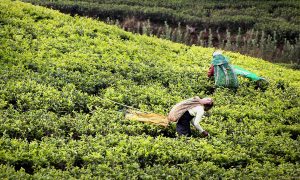The ethics of ethics
Procurement sourcing at face value seems a straightforward endeavour. Suppliers respond to confirmed demand from a buyer and business is subsequently done between them. Globalisation however is making these relationships increasing complex. There are often laws demanding suppliers treat their employees in line with international labour laws. This often includes a requirement for compliance with anti-modern slavery measures (forced or exploitative working conditions) as these measures are key to ethical sourcing practices.
As global pressure to perform from buyers on suppliers of products like clothing and agriculture produce remains high, it is inevitable that tension will exist between the noble goals of ethical sourcing and the hard costs that arise from doing business in a way that meets consumer demands. The way products are produced causes some consumers concern whilst others only care about price. People that are concerned about production methods often pay a premium on their selected products in the belief that staff working for producers are better treated.
Ethical sourcing in the tea and cocoa industries?
A recent report on ethical sourcing investigated practices in the cocoa and tea industries. It found there was no noticeable difference in the working conditions of people employed by “ethical sourcing” brands and those that are not selling under any “ethical sourcing” trademark or brand. There found forced labour conditions in unethical plantations and plantations certified as “ethical”.
Genevieve LeBaron, professor of politics at the University of Sheffield and author of the report, said: “It’s not clear that certification helped at all with forced labour, and they may give a quite misleading picture of what’s happening in supply chains to businesses and to consumers.” We found absolutely no difference on most indicators between certified and non-certified tea plantations – both had very, very serious forms of labour exploitation.”
Casting doubt
This pioneering report is part of the Global Business of Forced Labour project, and is a result of in-depth interviews with more than 120 workers and 100 business and government actors. They surveyed more than 1,000 workers in the cocoa and tea supply chain. It aggregated data from plantations certified by Fairtrade, Rainforest Alliance, Ethical Trade Partnership and Trustea, and looked only at the impact on labour rights.
Placing the spotlight on ethical sourcing certification programmes
The best known certifying programmes provided no clear answers as to how they will address their certification programmes following this report. These schemes claim they set standards around basic services, fair treatment, wages and debt, health and safety, and workers’ rights. This creates a quandary for businesses that have ostensibly strong CSR programmes but which do not stand up to pioneering research like this (the first report of its kind). The companies buying cocoa and tea overwhelmingly do so on the lowest price to quality ratio. Paying fair wages along the supply chain means that a commodity price + model is the only one that is capable of ensuring these certification programmes stand up to scrutiny.
The litany of evidence is damning and the evidence of maltreatment is compelling. For example, workers were:
- docked pay without cause, and/or
- underpaid, and/or
- forced into debt due to below subsistence pay conditions, and/or
- not paid at all for work, and/or
- forced to work in very poor conditions.
There is an implication from these certification programmes that these issues are less likely to apply if you buy their brand. It is clear that brands purporting to sell ethical products are making extraordinary claims to their customers. In return for these claims, they charge the consumers a premium. For this reason, the onus is now on them to back this up as extraordinary claims require extraordinary proof.
As a result, it seems extraordinary when a humble cup of tea may be a less ethical product than a legally purchased firearm.
Three measures that can improve conditions across the sector
Our views on the main recommendations are as follows:
- Review certification programmes. These programmes must be subject to serious, rigorous and ongoing scrutiny. If organisations cannot stand over the logos, they should not exist. There is enough evidence of obfuscatory and illegal practice to call for their outright abolishment and replacement by new programmes.
- Tackle the business demand for forced labour. Force leading companies in these sectors to demonstrate that their procurement processes are not causing forced labour. The report shows the conditions these workers endure are a result of the way leading brands work today. Consumer choices impact producer’s decisions so the more knowledge there is of dodgy certification, the better the chances for change. In the meantime, knowledge at the consumer level is key.
- Pay wages that allow people to live. Low wages force workers into debt. Consequently, the way sourcing is taking place and the choices businesses make across the supply chain needs to change. This said the industry must develop a fairer, more sustainable model and industry must lead this exercise.
It is EU policy to support the UN Sustainable Development Goals.
Target 8.7 reads: ‘Take immediate and effective measures to eradicate forced labour, end modern slavery […] by 2025…’.
There is some way to go to making this happen. We have written previously about other similar issues on this site and will continue to do so.
More help on sourcing and procurement
We also have lots of experience in sourcing and procurement across all spend categories. So, check out our Procurement Sourcing services to see how we can help with your procurement needs. Not only that, you can also search for ‘Procurement Sourcing‘ articles on our blog.
Public buyers in Ireland can get more advice from the Office of Government Procurement on the best tendering procedure to use and you can use etenders.gov.ie to request a tender. Likewise buyers in the UK can find the best tender portal for them by checking our handy list.


